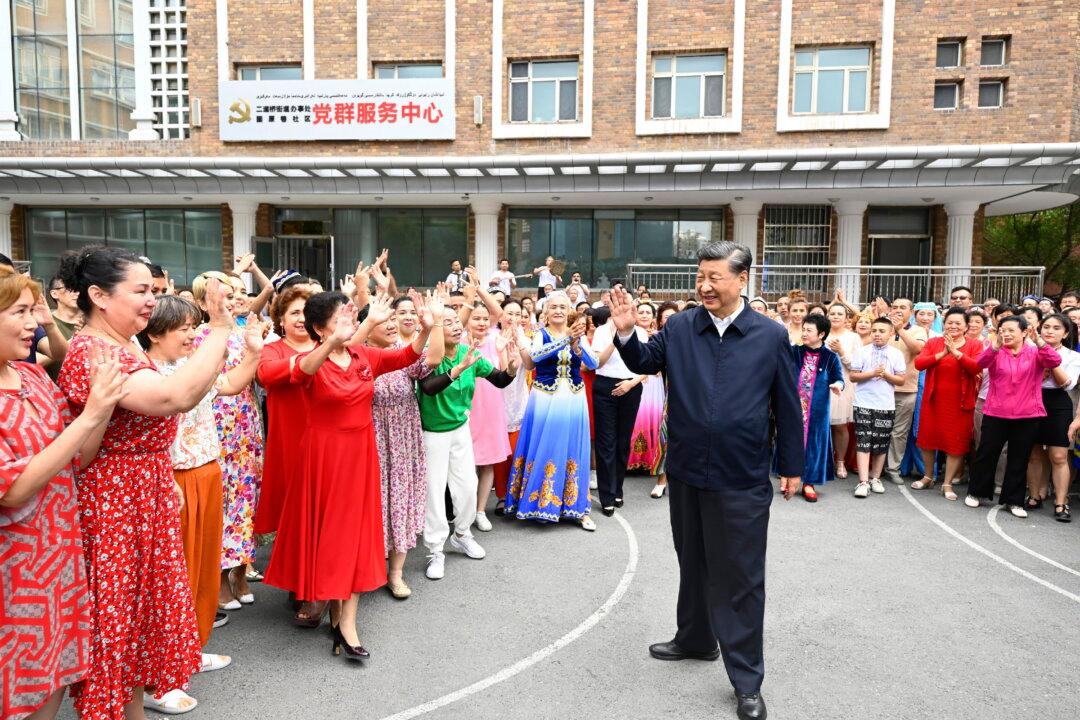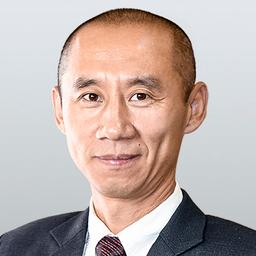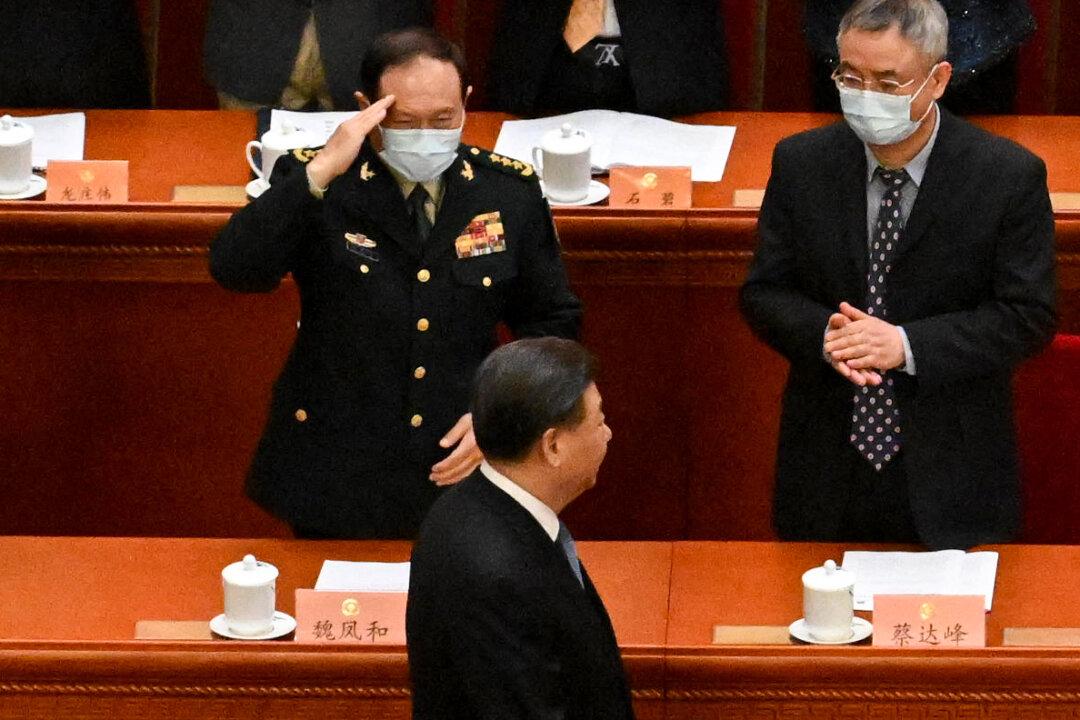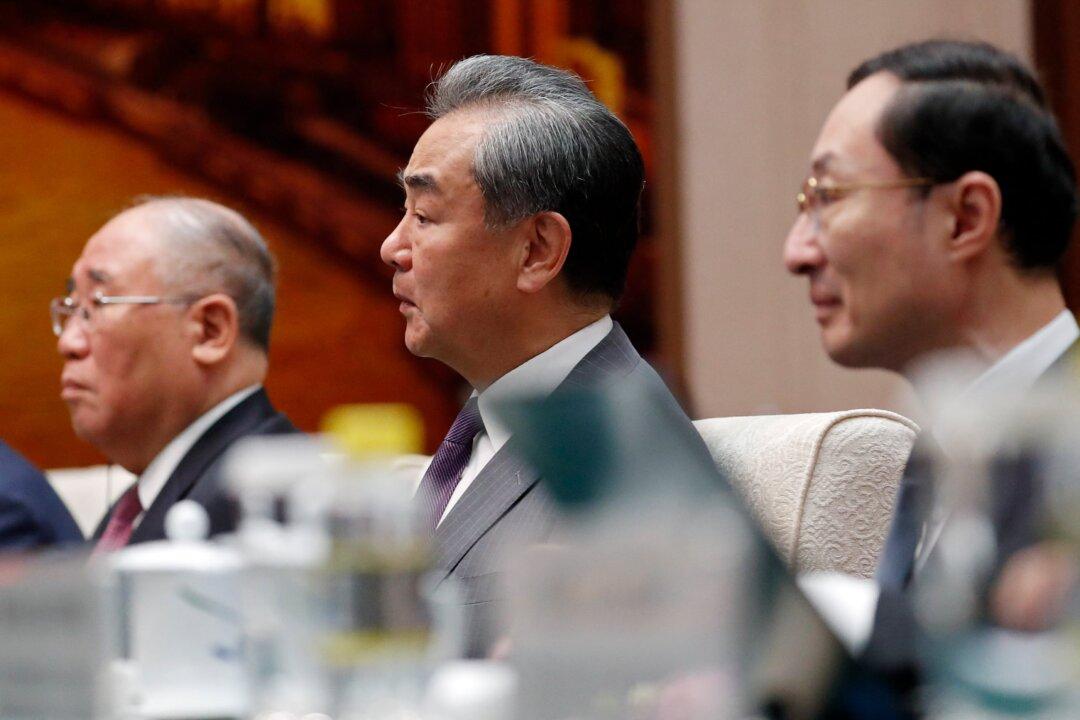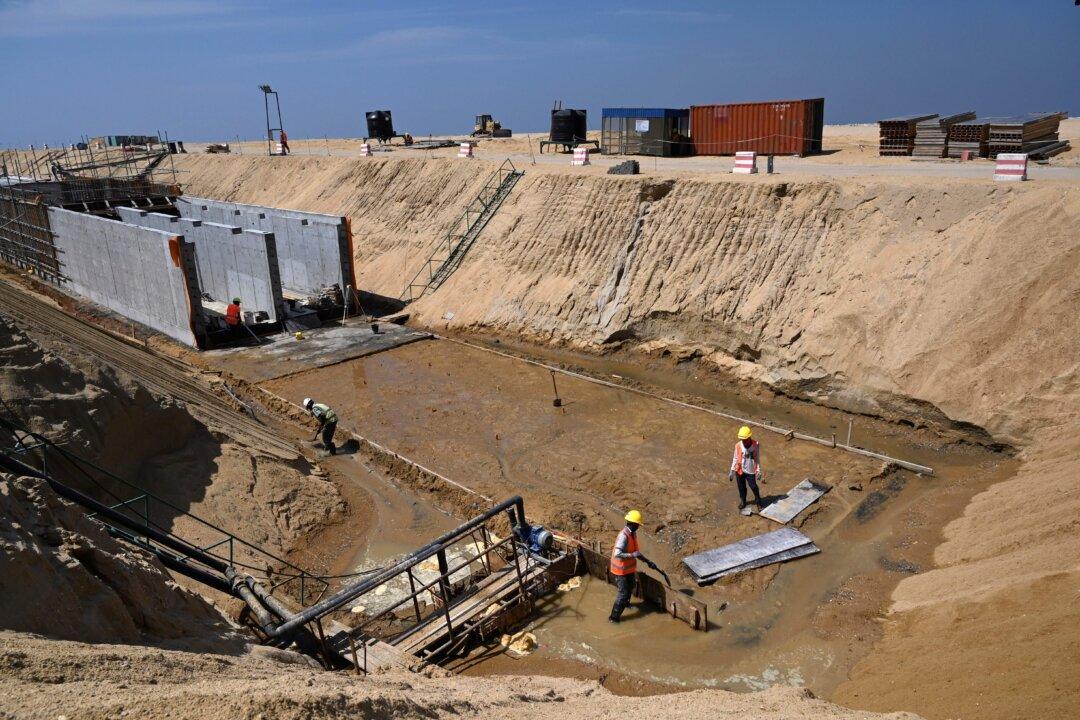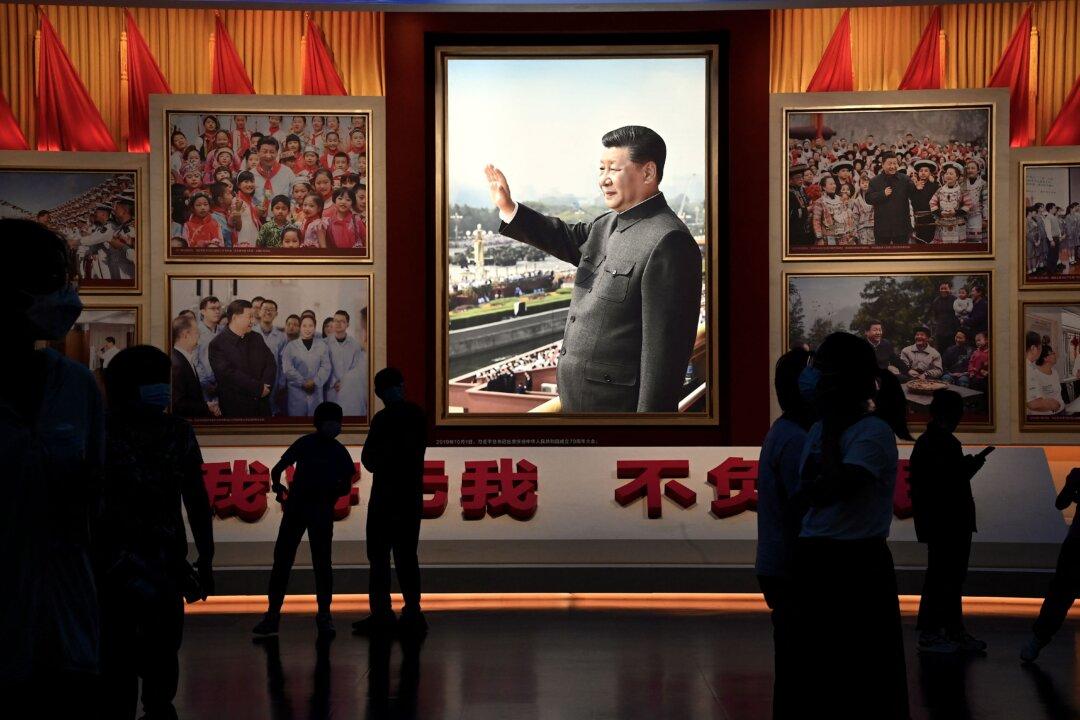Chinese leader Xi Jinping recently went to Xinjiang for an inspection, eight years after his last visit to this far-west China region. In addition to civilian officials, the entourage included the vice chairman of the Central Military Commission. This unusual occurrence could be a sign that Xi wants to warn and intimidate his political opponents.
China Central TV (CCTV) covered Xi’s Xinjiang inspection, which began on July 12 and ended on July 15, in a 34-minute propaganda piece in its prime-time news broadcast.
